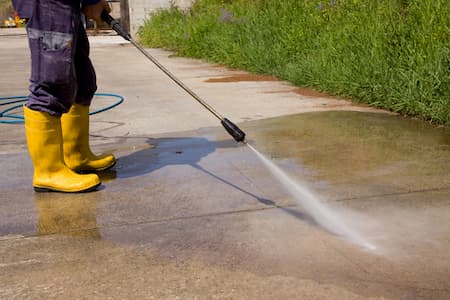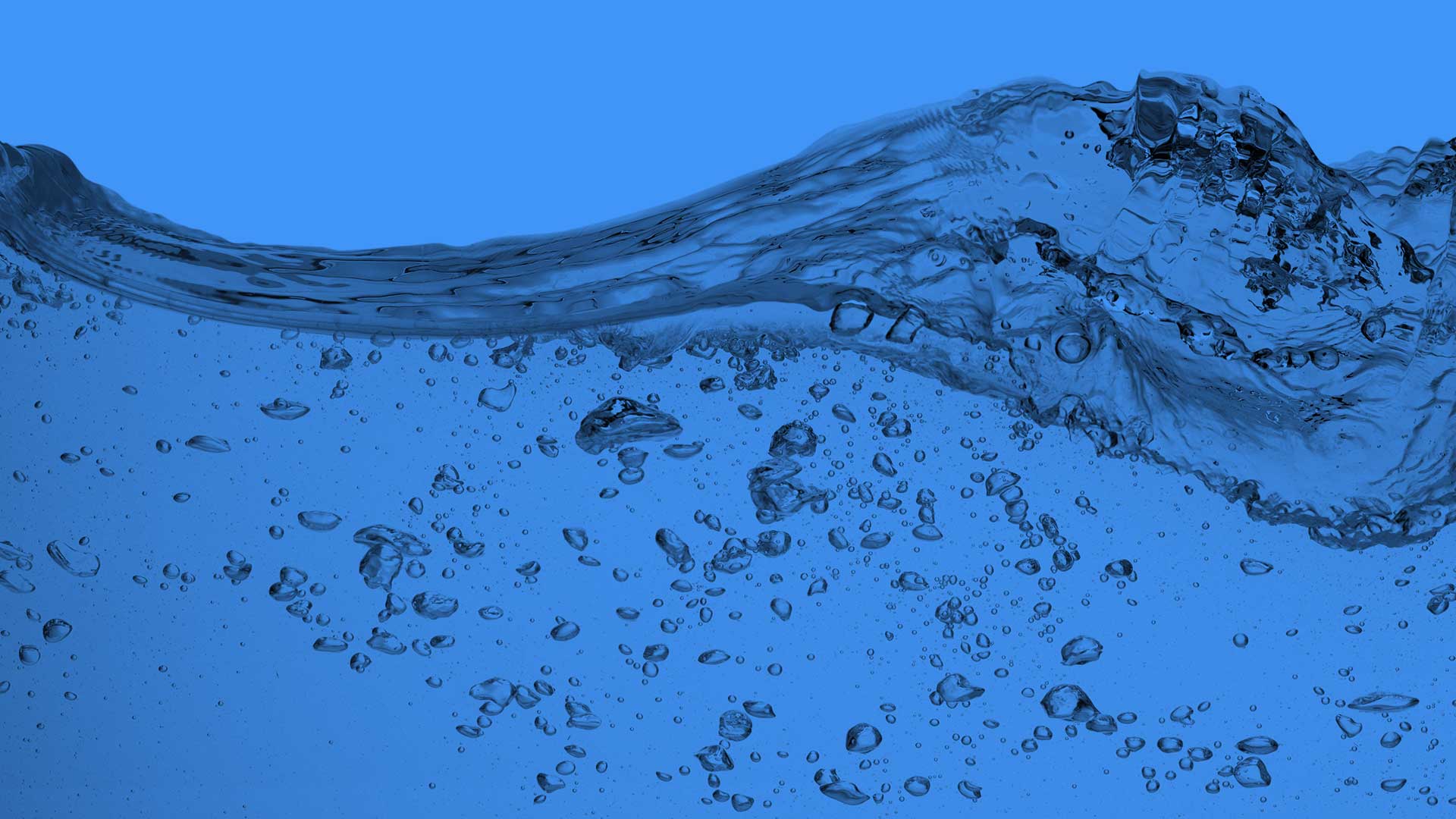Hard Facts About Concrete & Concrete Cleaning

Just because hard and soft are opposites doesn't mean they can't complement each other, and so is the case with hard surfaces like driveways, parking lots, and sidewalks that benefit from the sciences of chemically-assisted soft washing and temperature-controlled power washing, along with traditional high psi pressure washing. Exterior surfaces do not get their absolute cleanest with pressurized water alone, and the same soft washing and power washing techniques perfected on house washing, roof cleaning, and other chemical and temperature-involved processes designed for damage-prone surfaces, can make the difference in defeating the deepest stains and infestations.
If you know the hard facts about concrete, you know that a combination of traditional pressure washing and chemically-assisted soft washing by the concrete cleaning masters at Power Wash Ninjas gives your concrete surfaces the deepest, spotless cleaning.
Putting in a new concrete driveway is not a quick, simple, or inexpensive project, so it pays to be proactive by properly maintaining your hard concrete surfaces with proper maintenance habits along with regular professional pressure washing. First, it helps to understand the basic composition of concrete and cement surfaces.
Hard Concrete Facts
There are a few factors that can cause discoloration in concrete, but curing inadequacies are the most common. When concrete is new, a curing agent is applied to it, giving it a whitish color. Over time, this curing agent will naturally wear away. As it wears away, the natural, darker color of the concrete will present itself. It is important to make the distinction between dirty concrete and worn concrete and between natural fading and rust-like discoloration common in areas with high iron in the groundwater.
Concrete is extremely porous, and those pores are a natural part of the curing process of the concrete as the water evaporates out. Over time, rain carries road dirt, salt, and other contaminants into the concrete through those pores, making it look dirty. And those small pockets offer organic organisms like mold, fungus, and algae a place to put down roots and grow.
The only sure-fire way to ensure your hard surfaces are getting their cleanest is to give them the soft treatment from the soft washing masters of Power Wash Ninjas but there are a few things you can do to extend the life of your driveway between professional washings.
Concrete Is Not Invincible
Hard doesn't mean invincible! While concrete is inherently hard, tough, and strong, its surface is still susceptible to scratching, chipping, and other damage. Be careful with metal-edged tools to avoid scratching your driveway and make sure your lawnmower is set to a higher blade setting when driving over it.
Hard Facts About Salt And De-Icing Agents
While melting agents like salt effectively melt the ice on your driveway, their long-term effects can damage your concrete and cause cracks in your driveway. Salt will decrease the freezing point of liquids on the concrete, which causes water to pool, and freezing and thawing of ice and water will occur more frequently, leading to fissures and cracking of concrete in time.
Hard And Fast Facts About Oil Removal
When oil pools on your concrete driveways and surfaces, they can be frustratingly stubborn and difficult to remove, and the quicker you are to respond, the more likely you are to make some progress in the constant battle against oil stains. If the oil spot is still wet, you can apply something absorbent like cat litter or baking soda to soak up as much as possible, thus avoiding pooling that will penetrate even deeper into the pores of the concrete with time. Once you've removed all of the standing oil, apply water to the stain and scrub with a brush using a solution of water and baking soda, before rinsing. Repeat the process until satisfied, or call the Power Wash Ninjas and let us handle it.
Hard Concrete Sealer Facts
Concrete sealers are designed to strengthen and protect the surface and extend its life, and there are many types of sealers available, all with different properties and features. Acrylic and topcoat sealers are designed to protect the surface and often change the look of the concrete.
Penetrating sealers are designed to enter the pores of the surface and structurally protect the surface from within. Concrete sealing is an effective way of protecting and maintaining your driveways, sidewalks, and concrete surfaces, but needs to be done on a regular basis to get the longest possible lifespan out of your investment.

Our Goal Is Spotless Cleaning. Contact Powerwashninjas.com Today